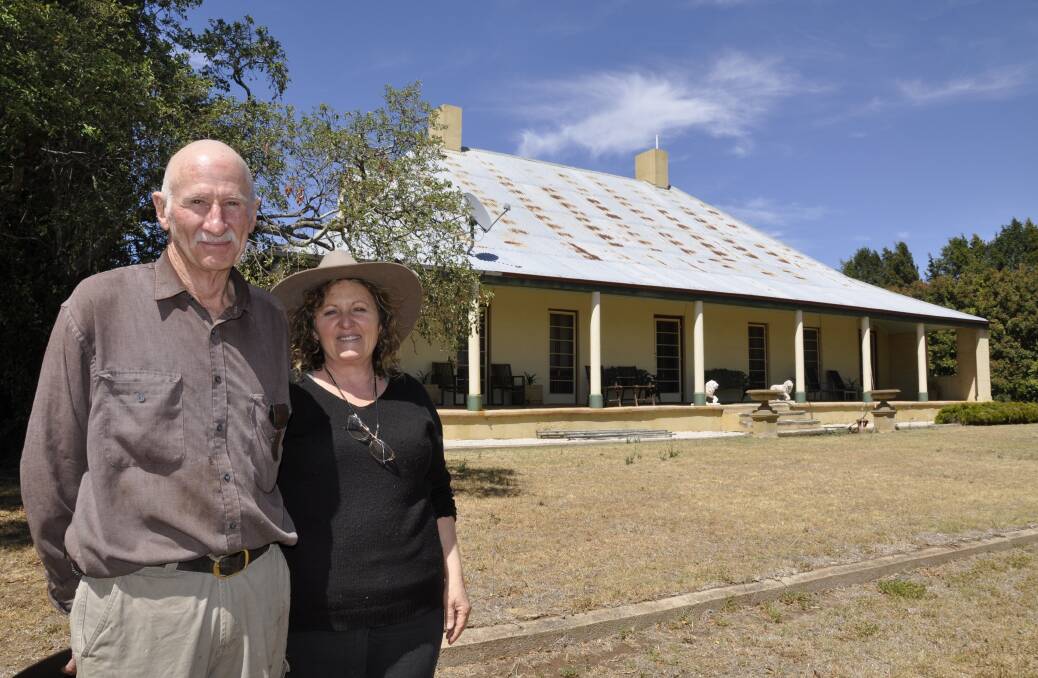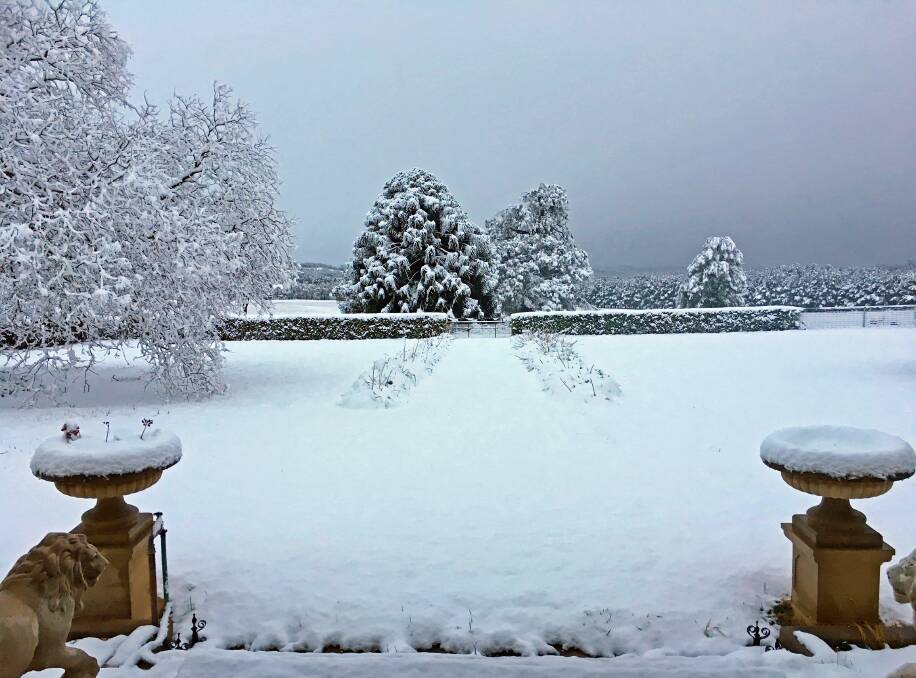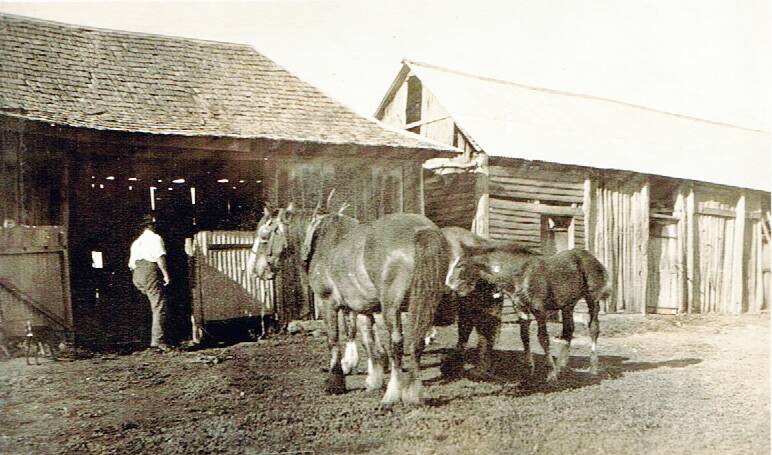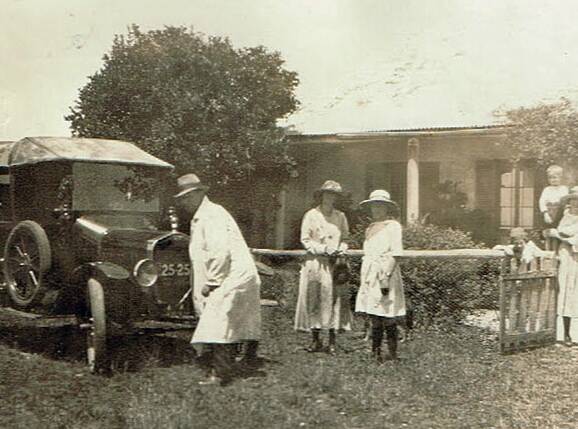If it's not the 1820s slab hut, it's the 1830s main homestead and remains of a working village that remind Philip and Diane Broadhead of the history all around them.
Subscribe now for unlimited access.
or signup to continue reading
Their home, Inverary Park, near Bungonia is one of the oldest properties in the Goulburn district, stemming back to convict days, a renowned doctor and a thriving grazing industry.
Now the property is going up for sale for the first time in 168 years. Mr Broadhead is the fifth generation of his family to own and farm the 460-hectare holding, 6km southeast of Bungonia.
"It's a big decision but it's a fairly big property and at 70, it takes a lot of energy," he said of the sale.
READ MORE: Chinese rapt in Inverary wool
"As you get older and see things that need doing but can't get to them, it's really frustrating. I want to be able to walk away and say the place is left in good order."
The property, including the six-bedroom convict-built homestead across two levels, 1824 slab hut, shearing shed, shearers quarters and outbuildings is up for sale through @realty. It also encompasses a spring/bore, nine dams and water tanks holding 200,000 litres.
Mr Broadhead has lived at Inverary Park for 67 years and took over its operation from his father, David Broadhead the fourth, in 1982.

His father was born in the homestead's front bedroom and Phillip fondly recalled growing up on the property.
"Dad would milk the cows before breakfast and then we (he and his two brothers and sister) learnt how to do it," he said.
"We used to milk the cows and separate the milk before we went to school."
David grew oat and canola crops on Inverary Park and produced lambs that consistently topped the Goulburn market, according to Mrs Broadhead's research. He was also a Goulburn Pastures Protection Board director, an active Goulburn Show Society member and was involved in several Bungonia organisations.
Mrs Broadhead has extensively researched the property's history over the past three years and has almost completed a book, Inverary Park 200 Years.
Early explorers Charles Throsby, Hamilton Hume and James Meehan passed through the area in 1818. Their notes about the country prompted Royal Naval surgeon and Argyle magistrate Dr David Reid to take up a 2000-acre land grant in the Bungonia area in 1821.
He immigrated to NSW in 1823 and by 1824 had built a slab hut at Inverary Park. The hut remains today.
By 1828, Reid had 2060 acres with 120 of this cleared and 55 under cultivation. There were vast tracts of open grazing country, 11 horses, 400 cattle and 2700 sheep, that year's census revealed. Wheat was also grown and processed with a wind-driven flour mill. Reid also had convict labour on the holding.
Mrs Broadhead said Inverary Park was a working village with wheelwrights, tanners, carpenters, blacksmiths, shoemakers and more. At one stage the property had 40 staff.

Broadheads continue tradition
The original homestead was thought to have been built in 1833-34. Reid, a significant figure in NSW' history, died in 1840 but his widow, Agnes stayed there until the late 1840s when she moved to Wangaratta to live with her son, David.
The first David Broadhead purchased the property, including 2000 acres, in 1853 for 2600 pounds. He leased an additional 5000 acres and ran cattle, sheep and cropped the land.
"I love the history of the place. It was the first property in the district to have gold found," Mrs Broadhead said.
David Broadhead II continued the farming tradition, won international prizes for his oaten and wheat hay and was considered a forward thinker. Inverary Park trialled the first mechanical reaper and binder in Australia in the 1870s.
ALSO READ: Funding boost for Lilac City Cinema
His son, also David, "went to great lengths to set up underground reticulation to drought proof the property," Mrs Broadhead said. He too was well respected, became a Mulwaree Shire councillor for 25 years and served as president for several terms.

Phillip, the son of David IV, worked beside his father in a partnership from 1973. He has continued the sheep, cattle and cropping activities and has fetched top prices for his vealers over the years. The sheep are built on Merryville bloodlines that produce superfine wool.
"That has been our main product for the longest time but for the past four to five years we've focused on cattle as they're much less work," Mr Broadhead said.
In the 1990s, the property was one of the first to trial CSIRO chemical shearing. Mr Broadhead has undertaken a great deal of pasture improvement.
"I've loved it. It's really good basalt soil which you can do anything with and you get all seasons here. It also has a wonderful view."
While there have been many highlights, there have also been challenges. Mr Broadhead said drought had undoubtedly been the most testing and recalled setting up feedlots for sheep in an ultimately successful bid to retain core breeding stock.
Now it's time for a new chapter. The Broadheads' children have pursued other careers and the couple has planned to move to a smaller rural block close to Bungonia. They will retain a small portion at Inverary Park. They plan to spend more time with their nine grandchildren.
"We love Bungonia. It's a lovely spot and we want to stay around," Mr Broadhead said.

"We'll miss the property and selling is a hard thing to do but reality has to rule. It's the right time."
Elias Sleiman from @realty said Inverary Park had attracted strong interest from all over NSW in the three weeks it had been on the market.
"We are considering an offer at the moment that if accepted will set a record price. If it doesn't sell on the open market it will go to auction but I think there's an 80 per cent chance of it selling this week."
The property advertisement can be viewed at this link.
We depend on subscription revenue to support our journalism. If you are able, please subscribe here. If you are already a subscriber, thank you for your support.


